Catching up…
For a general view of news from various geopolitical threatres, Scott’s EA Worldview is always superb.
I just think this is cool…Two brothers aged12 and 10 from Ukraine’s west. The drummer is 13 from around Kyiv.
Stories we’re following…
Zarina Zabrisky—Kherson: Russians shelled a toy store. I shopped for gifts for little ones I know there. Dinosaurs, plastic babies, unicorns. “They probably thought it was a NATO base. We’ve got water guns.”
Overnight on Sunday, Russia launched 107 Shahed-type and decoy drones from Bryansk, Kursk, Millerovo, and occupied Crimea. Ukraine’s air defense neutralized 74 of them—64 shot down, 10 suppressed by EW.
Combat Situation
Russia has massed 50,000 troops near Sumy—three times more than Ukraine has in the area and just 20 km from the city. Despite losing 300–400 troops daily, they keep sending in reserves. Ukrainian soldiers are digging trenches under fire, and elite units are being deployed to hold the line.
A missile threat has been reported as far as 800 kilometers from the Ukrainian state border — in Astrakhan. It’s the first time an air raid alert has been issued there since the beginning of the war. Additionally, takeoff and landing restrictions have been imposed at Astrakhan Airport due to the threat posed by Ukrainian missiles.
On Monday night, Ukrainian missiles hit the Donetsk State Institute of Non-Ferrous Metals, which housed the headquarters of Russia’s 8th Guards Combined Arms Army in occupied Donetsk.
Footage shows North Korean troops and commanders who took part in Russia’s Kursk region. The event marked the first anniversary of the Russia–North Korea Comprehensive Strategic Partnership Treaty. Scenes also showed Kim Jong-un receiving the coffins of DPRK soldiers killed fighting Ukrainian forces in the region.
FT: Putin’s primary target is Odesa, according to a senior official cited by the Financial Times. While things are going better for Ukraine diplomatically, the war itself seems to be going worse. Some Nato leaders fear that the situation on the frontline could deteriorate seriously by this autumn. That would be far more significant than any paper commitments made in last week’s Nato communiqué. Military assessments suggest that both the Russian and Ukrainian militaries are nearing the point of exhaustion. But while Russia can probably keep up the current level of operations for another year, Ukraine may reach a breaking point within six months — if it does not receive significant new military support.
Kaboom: The top official of the General Staff of the Russian Federation Yaroslav Moskalyk was blown up near Moscow, — Russian media An explosive device with striking elements was installed in the car.
WaPo: Russia has unleashed its summer offensive in Ukraine’s east and is slowly grinding forward with its advantage in manpower, artillery shells and missiles. The coming months are crucial in President Vladimir Putin’s bid to force Kyiv’s capitulation.
Yet Russia’s progress over the past two years against Ukraine has been glacial, especially compared with the recent lightning strikes by Israel against a much larger Iran. The reason, according to experts, is the state of Russia’s military — a long-standing problem.
“These [mass assault] tactics are the only thing the Russian military is capable of at the moment. And it’s very inhumane because in fact dead people are being traded for territory. What we have in the Russian army now is a lot of soldiers, but they have no training.”
“The biggest issue that they see is not enough manpower. It’s been a constant topic for at least a year. They have been talking about how the people who want to fight and who sign contracts now are really — and it’s their own words — second-rate citizens, people with alcohol problems, people with drug addiction, people with poor health, people who are over the fighting age. Not all of them, but more and more of them.”
Behind the Lines
Czech President Petr Pavel has said that at a closed-door dinner during the NATO summit in The Hague, leaders tried to persuade Trump to increase pressure on Russia, but he remained indecisive, as reported by Euractiv.
Pavel recalled that he and other leaders spoke to Trump "very consistently and collectively", trying to convince him that it was time to significantly increase economic pressure on Russia.
"Not with the aim of causing Russia’s economic collapse – that’s not in our interest – but to make it realise that there’s simply no alternative to negotiation," he added.
Meanwhile, the Czech president said that Trump "remained reserved for now, but he is aware that this is a very effective tool".
When Trump pointed out his previous success in relations with China during dinner, claiming that high tariffs had forced Beijing to change its position, Pavel used this argument to reinforce his point of view in the context of pressure on Russia.
"I said: ‘You see, this is exactly the kind of decisive approach we now need toward Russia. If China felt it within a month, then Russia, with its economy, might feel it within a week or two’," he said.
Canada has transferred approximately US$1.7 billion to Ukraine from revenues generated by frozen Russian assets, as part of the G7 Extraordinary Revenue Acceleration (ERA) initiative, reported PM Denys Shmyhal on X.
"We are grateful to Canada, Prime Minister Mark Carney and everyone involved in this initiative. We insist on the full confiscation of the frozen Russian assets. They are needed to compensate the victims of aggression and to rebuild our state. This will also be an act of justice to prevent aggressive wars in the future."
US, Russian spy chiefs agree to keep direct line open, Moscow says. "I had a phone call with my American counterpart, and we reserved for each other the possibility to call each other at any time and discuss issues of interest to us," the Director of Russia’s Foreign Intelligence Service, Sergey Naryshkin, said.
Bloomberg: The Trump administration has lifted sanctions off of several Russian banks on operations relating to civil nuclear energy, as reported yesterday in E-Stories. The Orban government and Rosatom can move forward with their PAKS II project.
This is significant: it will be used as a legal back door for Russian banks to skirt sanctions for other purposes. This comes at the time when Trump may have given Lindsey Graham the green light on the sanctions bill that the Senate would like to introduce.
Meanwhile in Russia & China…
The Kremlin has launched a new competition and training program for «social architects», as the Kremlin’s political bloc likes to call «political technologists” — Russian term for spin doctors and political consultants.
This move is a very honest manifestation of Sergey Kiriyenko’s approach to managing social processes. Unlike spin doctors and political consultants, «social architects» are supposed to serve «social projects», such as Internet voting on urban renovation projects or the rehabilitation of war veterans. Kiriyenko and his subordinates see society not as a subject, or at least one of the subjects of state life, but as an object, material — clay of sorts in the skillful hands of «architects».
Sergey Kiriyenko was the one to launch the «Social Architects» competition and to announce its manifesto. «Today there is a demand not only for political technologies, but also for social technologies. The demand is not just for expertise, not just for a scientific explanation of what is happening, but for changing life for the better,» said the head of the Kremlin’s political bloc.
Paul Goble: Ever More Russian Companies have Felt Free Not to Pay Workers On Time, ‘Okno’ Survey Finds
Since Putin launched his expanded war in Ukraine, Russia government monitoring of firms concerning whether they are paying their employees reguarly has disappeared, a survey of workers in companies in the North says. As a result, the companies, even those working on defense contracts, have felt free not to pay their workers on time.
Conducted by the Okno group, the survey found there are many reasons companies find it difficult to pay on a timely basis, including failure to be paid for their products and a desire to extract as much money out of their factories as possible.
What this means, of course, is that the natural anger workers and employees feel when they aren’t paid as scheduled will almost certainly feed anger about the war itself, pushing down support for what Moscow is doing there, however much the Kremlin and its propagandists seek to suggest otherwise.
The coming together of these two types of anger thus presents the Kremlin with a serious problem, one that it can’t solve without infuriating either more workers or the company bosses who often are the closest allies of the Kremlin leader.
An oil tanker (Vilamoura) that docked twice in Russian ports, on April 7 in Ust-Luga in the Baltic Sea, and at the end of May in Novorossiysk, exploded off the coast of Libya with one million barrels of oil and is being towed to Greece.
The most popular type of bread in Russia — sliced white loaf — may disappear from stores if the authorities introduce strict price controls on socially important goods. This was stated in an interview with RBC by Alexey Tulupov, the owner of the country's largest bakery and confectionery holding company, Kolomensky.
In March, Russian Prime Minister Mikhail Mishustin announced that the authorities were ready to take the "strictest" measures to slow down food inflation. Speaking with his annual report in the Duma, he recalled that the regions had already received the authority to limit the markup on basic food products, which rose in price last year to a record high in 9 years and continue to rise in price at a double-digit rate.
According to Rosstat, last year wheat bread rose in price by 14.6% - 1.5 times faster than overall inflation, which the authorities estimated at 9.5%. In January-May of this year, the growth in bread prices was another 6.2%, and the cumulative total since the beginning of the war has exceeded 35%.
In the Belgorod Region, work on restoring property damaged by military action for those citizens who left the country has been postponed until the end of the war with Ukraine, said the head of the region, Vyacheslav Gladkov. "At the last meeting of the operational headquarters, a decision was made on the proposal of the heads of municipalities that we will deal with the restoration of housing and transport damaged as a result of shelling for residents who have now left the Russian Federation and do not live on its territory after the end of the SVO," he said at a meeting of the regional government on June 30.
Azerbaijan cancels Russian events over 'extrajudicial killings' of 2 citizens in Russia's Yekaterinburg. Azerbaijan has cancelled all planned cultural events hosted alongside Russian state and private organizations, the country's Culture Ministry announced on June 29, over the deaths of two Azerbaijani citizens during police raids in the Russian city of Yekaterinburg.
Azerbaijan's state TV aired a sharp anti-Russian message following the deadly police raid in Yekaterinburg that left several Azerbaijanis dead. The anchor criticized Kremlin's neo-imperial mindset, compared Putin to Stalin, and warned: “This is not 1937. We are independent.”
FSB Agents Disguised as Journalists Arrested During Raid on Sputnik Office in Baku
According to reports, two FSB agents working under journalistic cover were detained. Russian propagandists had ignored an official order to cease operations and kept coming to the office as if nothing had happened, despite the outlet being officially shut down on February 24.
The raid comes amid a sharp deterioration in Russia–Azerbaijan relations. Tensions flared after the detention of several Azerbaijani nationals in Yekaterinburg, during which two people died.
Earlier, Azerbaijan’s Foreign Ministry summoned the Russian ambassador, and cultural events linked to Russia were canceled across the country.
The Azerbaijani Ministry of Culture accused Russian security forces of extrajudicial killings and acts of violence against Azerbaijanis. The conflict is being actively covered in local media, with many accusing Russia of ethnic repression.
Meanwhile, controversial Russian propagandist Sergey Mardan stoked outrage by calling Azerbaijan’s capital “a Russian city.”
RFE/RL: "Remove the alien appointees and Muscovites!" Altai protests against the destruction of the self-government system.
People are unhappy with the reform, which eliminates rural settlements and local councils of deputies, and unites municipalities into districts. They demanded the resignation of not only Turchak, but also the chairman of the government, Alexander Prokopyev, who took office in June 2025. Local residents believe that the new authorities are carrying out political reform in the interests of big business - in particular, ZAO Evalar (owned by Larisa Prokopyeva, mother of Alexander Prokopyev) and Sberbank.
Taiwan Presidential Official Spokesman: President Chingte Lai convenes Whole-of-Society Defense Resilience Committee meeting ahead of Taiwan's Nat'l Solidarity Month. We strongly condemn China's planned aggression targeting VP Bi-khim Hsaio during her visit to Czechia. The world must stand against violence & coercion.
OCCRP: For Serbian journalists on the corruption beat, one name keeps popping up: that of Siniša Mali, the former mayor of Belgrade and the country’s current finance minister, whose career has flourished despite multiple exposes into his secretive business dealings. Now, as anti-corruption protests grip Serbia, we explain how a decade’s worth of reporting on Mali serves as a record of the country’s captured state.
Protests that began on Saturday night in Belgrade spread across 40 cities by Sunday, blocking the streets and setting up camps after mass arrests by Vučić’s government.
As reported by the BBC, a sea of around 140,000 protesters rallied in Belgrade on Saturday, the largest turnout in recent months, as student-led demonstrations mount pressure on the populist government. "We want elections!" the crowd chanted.
President Vucic accused protesters calling for an election of being part of a foreign plot trying to usurp his country. "They wanted to topple Serbia, and they have failed," he wrote on his Instagram page.
Months of protests across the country - including university shutdowns - have rattled Mr Vucic, whose second term ends in 2027 when there are also parliamentary elections scheduled.
The president has previously refused snap elections. His Progressive Party-led coalition holds 156 of 250 parliamentary seats.
Mr Vucic's opponents accuse him and his allies of ties to organised crime, corruption, violence against rivals and curbing media freedoms, which they deny.
He has maintained close ties to Russia, and Serbia - a candidate for EU membership - has not joined the Western sanctions regime imposed on Moscow over its invasion of Ukraine.
In Europe…
Germany now officially supports Ukraine’s NATO membership, President Zelensky stated. “We value Germany’s clear signal: Ukraine’s future is in NATO. It’s important that all partners share this vision. We thank the Chancellor, his team, and the German people for their unwavering support and leadership in Europe’s defense assistance.”
Zelensky added that discussions included expanding sanctions pressure on Russia, potential deliveries of additional IRIS-T air defense systems, and joint weapons production in both Ukraine and Germany.
WSJ: Buying U.S. Arms Will Help Europe Unlock Trade Deal With Trump, EU Leader Says. Europe’s deal with President Trump to boost its military spending will help defuse a trans-Atlantic trade war, because much of the new money will go toward U.S. arms, one of the European Union’s top two officials said.
“Of course, a large part of this 5% will be spent for sure buying American, and it helps to rebalance the trade relations,” said António Costa, who heads the European Council, in an interview referring to the new target. “This agreement in NATO paved the way to have an agreement as soon as possible on trade,” he said.
The EU's 18th sanctions package against Russia is still being blocked by both Slovakia and Hungary, per a senior diplomat. Slovakia seeks gas-related guarantees; Hungary has not stated conditions. Talks are likely to be resumed after the EU Commission visit to Bratislava on July 3.
Kaja Kallas: The EU today officially agreed to extend sectoral sanctions on Russia. We will continue to pile pressure on Moscow to end its war in Ukraine. Each sanction weakens Russia’s ability to wage war.
Kaja Kallas announced: The EU and Armenia have never been closer. Today, we announced a political agreement on an ambitious Partnership Agenda. We also signed an agreement to enhance cooperation in crisis management.
POLITICO: Italian politicians are proposing that a long-discussed €13.5 billion bridge to Sicily should be defined as military expenditure.
The government of Giorgia Meloni is keen to advance with the pharaonic scheme to span the Strait of Messina with what would be world's longest suspension bridge — a project that has been the dream of the Romans, dictator Benito Mussolini and former Prime Minister Silvio Berlusconi.
Both Foreign Minister Antonio Tajani and Infrastructure Minister Matteo Salvini, Meloni's deputy prime ministers, are playing up the notion that the bridge has a strategic value to NATO rather than a purely economic role — a point that was also stressed in a government report in April.
A government official stressed no formal decision had been made on the classification of the bridge as a security project, but said further talks would likely be held soon to “see how feasible this feels.”
An Italian Treasury official also suggested that branding the bridge as a military project would help the government overcome some of the economic and technical barriers that have stopped it being built in the past.
In other news…
Reuters: Immigration raids leave crops unharvested, California farms at risk.
Lisa Tate is a sixth-generation farmer in Ventura County, California, an area that produces billions of dollars worth of fruit and vegetables each year, much of it hand-picked by immigrants in the U.S. illegally.
Tate knows the farms around her well. And she says she can see with her own eyes how raids carried out by agents from U.S. Immigration and Customs Enforcement in the area’s fields earlier this month, part of President Donald Trump’s migration crackdown, have frightened off workers.
“In the fields, I would say 70% of the workers are gone,” she said in an interview. “If 70% of your workforce doesn’t show up, 70% of your crop doesn’t get picked and can go bad in one day. Most Americans don’t want to do this work. Most farmers here are barely breaking even. I fear this has created a tipping point where many will go bust.”
The Trump administration has codified its efforts to strip some Americans of their US citizenship in a recently published justice department memo that directs attorneys to prioritize denaturalization for naturalized citizens who commit certain crimes. The memo, published on 11 June, calls on attorneys in the department to institute civil proceedings to revoke a person’s United States citizenship if an individual either “illegally procured” naturalization or procured naturalization by “concealment of a material fact or by willful misrepresentation”.
Mo: I’m not an expert in the laws governing the status of naturalised American citizens. Attention to this does indicate to me that ‘facts’ could be manufactured to create the justification to take citizenship away from naturalised citizens.
Secretary Marco Rubio will host the Quad Foreign Ministers’ Meeting to strengthen U.S. and Indo-Pacific prosperity and security. The Quad will unveil new efforts to address the region’s most pressing challenges.
Trump is set to sign an executive order today related to easing sanctions on Syria. It comes amid rumors about Syria joining the Abraham Accords or another kind of a peace agreement in exchange for a cessation of Israeli hostilities in SW Syria.
Reuters: Canada scrapped its digital services tax targeting US technology firms, just hours before it was due to take effect, in a bid to advance stalled trade negotiations with the United States.
The US will restart trade negotiations with Canada immediately after Canada scrapped its digital services tax targeting US technology firms, White House economic adviser Kevin Hassett has said.
Iran will not resume nuclear deal negotiations with the United States as long as Washington continues to “dictate” its terms, Iran’s ambassador to the United Nations, Amir Saeid Iravani, said.




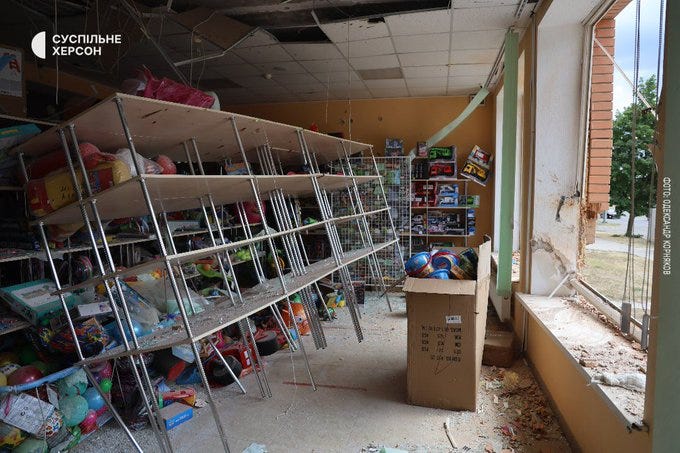

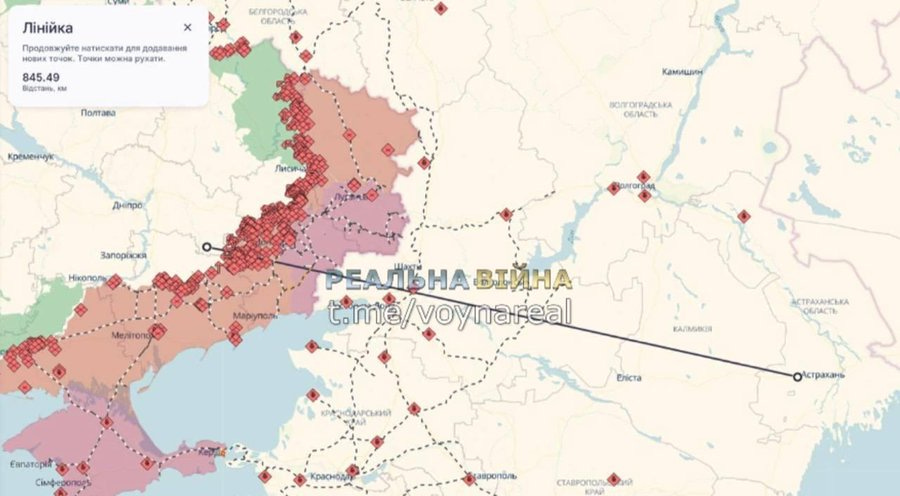


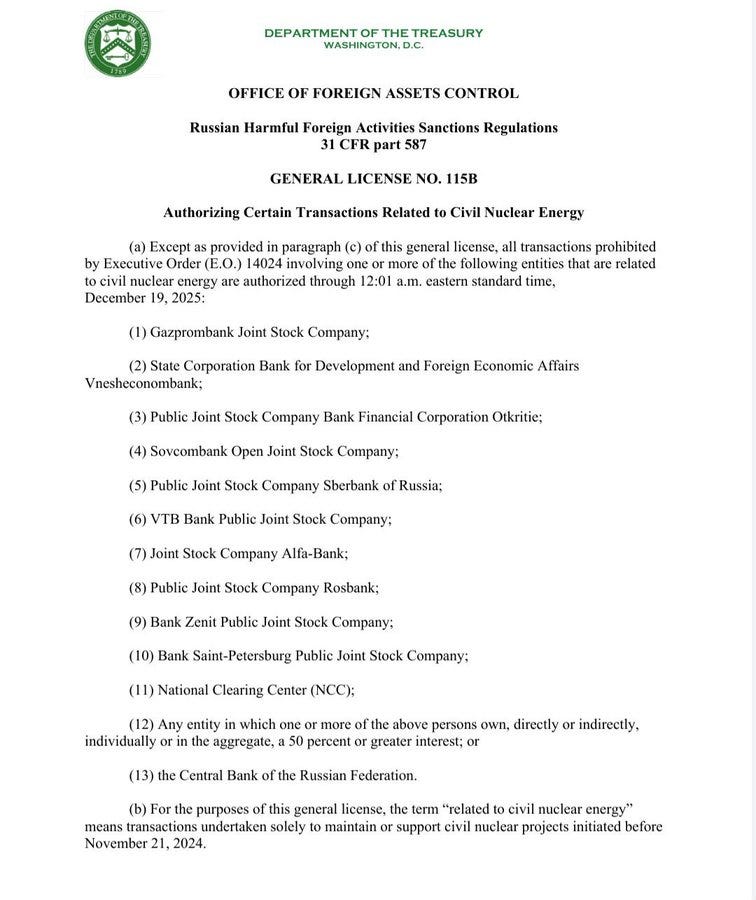
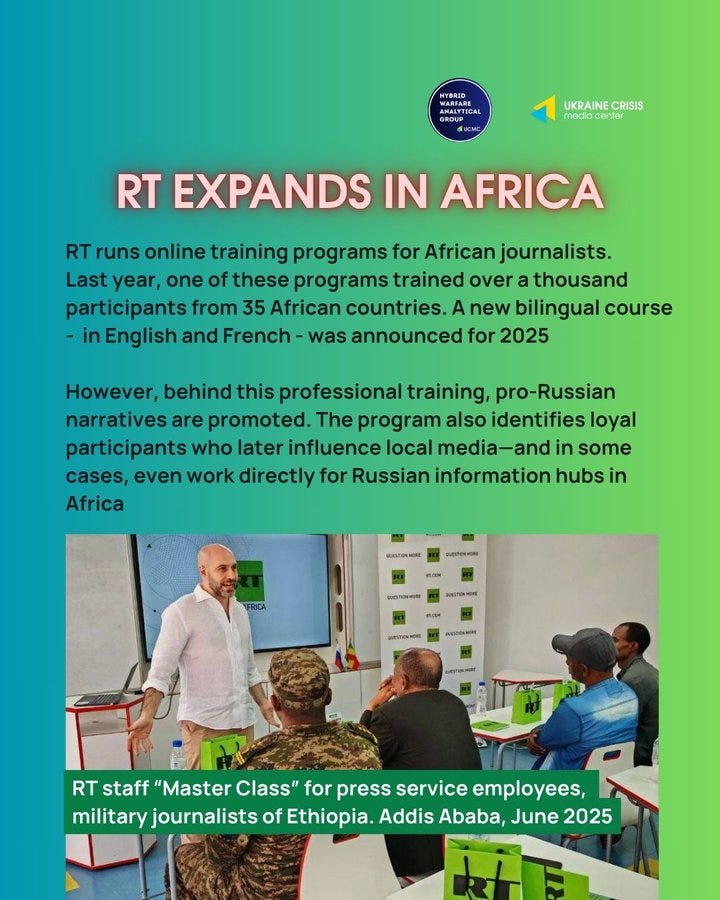

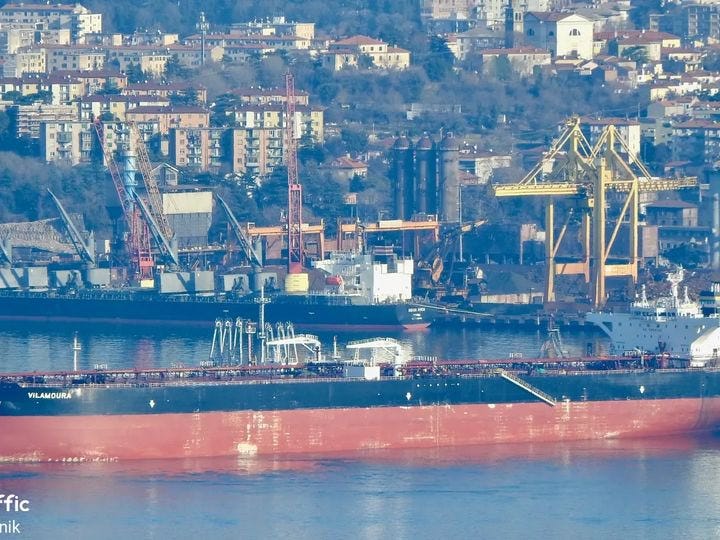
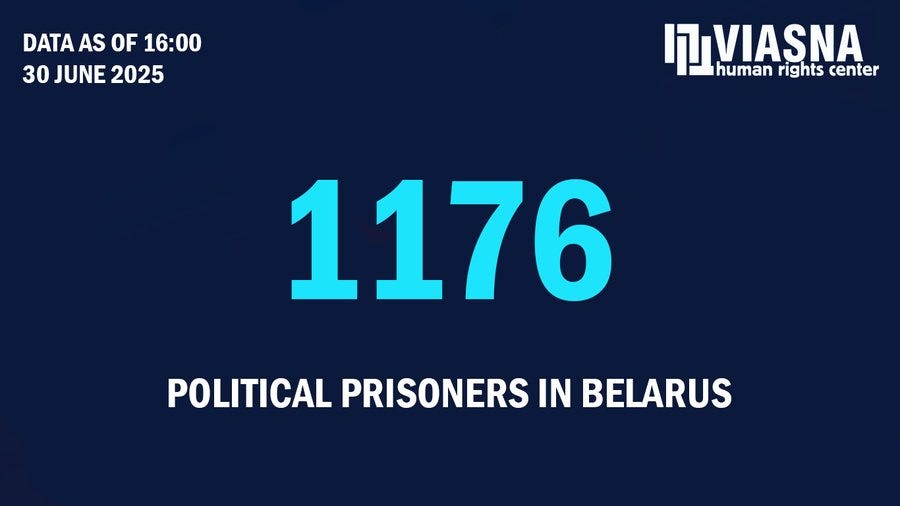

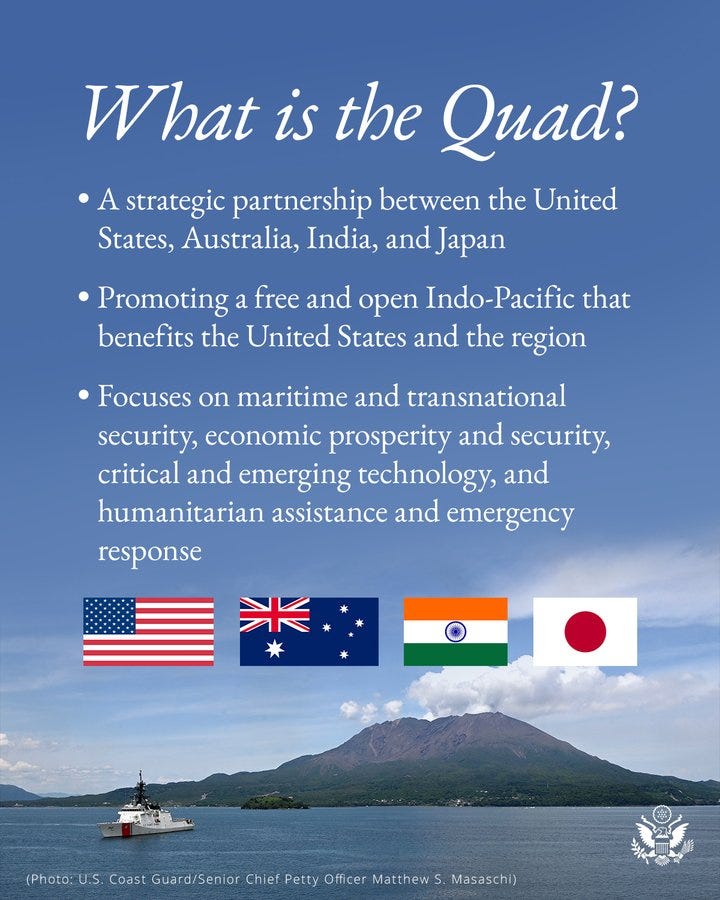
Thank you, Mo, for your rich daily round-ups of the news in Ukraine, as Russia continues relentlessly waging war against the free world, and all around !
Re: today's headline "Kaboom" a google search shows that Moskalik was killed on April 25, 2025.